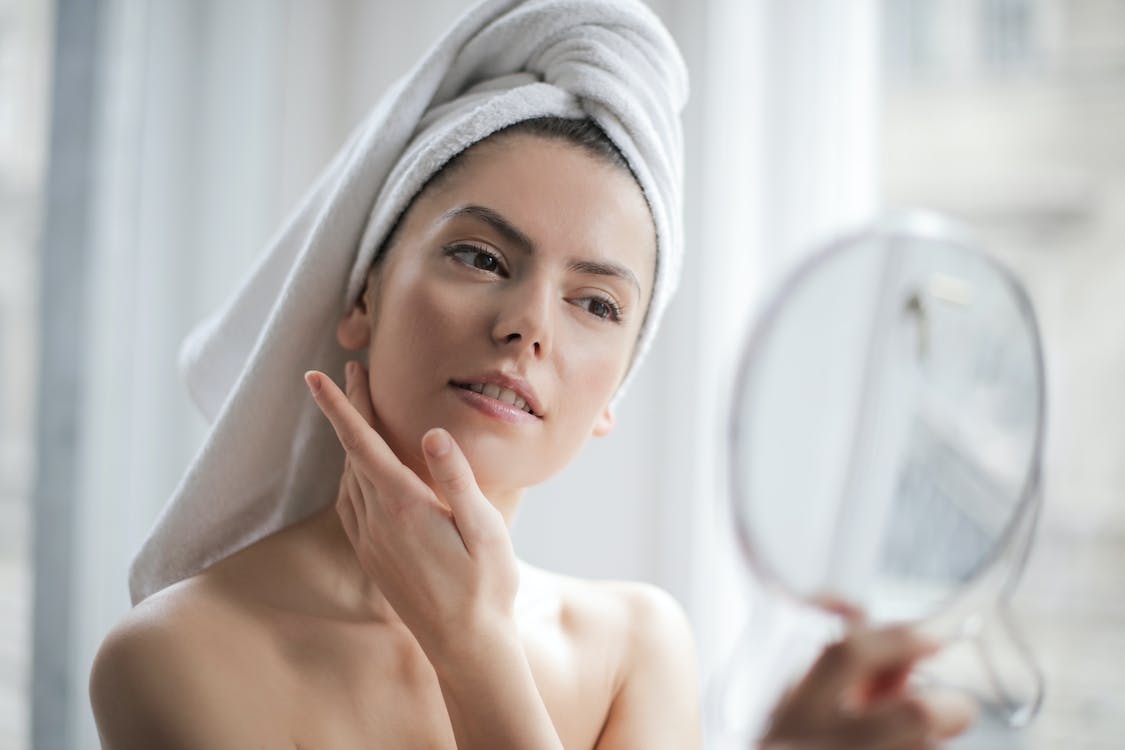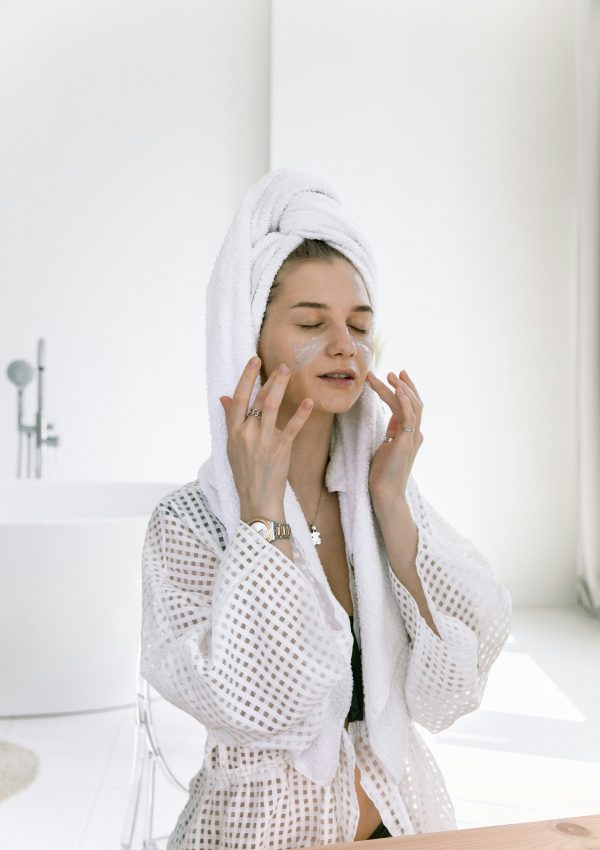
There are a lot of reasons why we should care about our skin. First, it’s an important part of how we look, and second, it’s the first line of defense against sun damage and other environmental stressors that can cause wrinkles and other signs of aging.
To make sure your skin stays healthy as you age (or just so it looks good now), you need to have a skincare routine that addresses all its needs. Fortunately, there are plenty of ingredients out there that can help give your face the love it deserves.
In this post, we’ll be walking through some must-have ingredients for any facial skincare routine and explaining why they’re so important.
Niacinamide
Niacinamide is a form of vitamin B3 that’s known to improve the look of the skin by reducing the appearance of wrinkles and fine lines. It’s also been shown to help fade acne scars and improve skin texture.
If you’re looking for a good ingredient to incorporate into your skincare routine, if you have oily or combination skin, then niacinamide may be right for you.
Retinol
Retinol, a vitamin A derivative, is an important ingredient in facial skincare. Retinol helps to reduce the appearance of wrinkles and fine lines, and it’s especially good for dry skin, as it can help restore its natural barrier function.
Retinols are also common ingredients in anti-aging creams. Skincare brands like Face Gym especially recommend Retinols because it promotes collagen production, making your skin look younger by reducing pore size, smoothing out fine lines around the eyes and mouth, lightening dark spots or discoloration from acne scarring or sun damage, and improving elasticity. All the while reducing inflammation.
Retinol is an essential part of many skin care product brands like Face Gym.
Collagen
Collagen is a protein that’s found in the skin, and it’s what makes your skin look plump and youthful. Collagen is what gives you that youthful glow. The kind of glow only a fresh face-lift could give you before surgery became so popular.
According to MBG Health, as people enter menopause, they may notice a 30% reduction in collagen, compared to the usual 1% decline per year. This decrease in collagen can affect skin health. To support the natural collagen levels in your skin, collagen supplements can be an effective option.
If you want to get collagen into your diet, try eating foods like fish (salmon), chicken (chicken breast), or beef (steak).
Hyaluronic Acid
Hyaluronic acid is a powerful ingredient that can help your skin look younger and more radiant. It’s a natural substance found in the human body, but our supply decreases as we age.
It’s also used to treat dry eyes and lips, as well as improve joint health by lubricating them with hyaluronic acid.
Hyaluronic acid is an ingredient found in many moisturizers and serums because it holds up to 1000 times its weight in water. This makes it an excellent hydrator for dry or aging skin types which need extra moisture to stay hydrated throughout the day (or night). Plus, it helps reduce inflammation caused by acne breakouts by calming redness so that pimples heal faster than normal without leaving behind scars.
Salicylic Acid
Salicylic acid is an alpha hydroxy acid that exfoliates the skin and helps treat acne. It’s a keratolytic agent, which means it dissolves the intercellular cement holding dead skin cells together. This can help unclog pores and allow for better absorption of other products applied to your face.
OpenPR recently released a report stating that the global market for premium salicylic acid was valued at $131.4 million in 2020 and is predicted to reach $263.9 million by 2030. Salicylic acid is expected to exhibit a Compound Annual Growth Rate (CAGR) of 7.2% from 2020 to 2030. The growth of the premium salicylic acid market is attributed to the rising demand for preserved food and beverages as well as its popularity in various personal care products.
Jojoba
Jojoba oil is a powerhouse ingredient that can do wonders for your skin. It’s an emollient, which means it helps to keep moisture in your skin and protect it from environmental factors like harsh weather or UV rays. It also has antibacterial properties.
Jojoba is good for all skin types, from oily to dry, acne-prone to sensitive, and works well as a moisturizer under makeup because it doesn’t clog pores or cause breakouts. If you’re looking for something with added benefits, try using jojoba in place of coconut oil. It contains no trans fats and has anti-inflammatory properties as well as vitamin E (which keeps wrinkles at bay).
Witch Hazel
According to Verywell Health, witch hazel, derived from the plant Hamamelis virginiana, is a natural remedy that Native American tribes have used for centuries to alleviate skin problems. It is one of the few plants approved by the Food and Drug Administration (FDA) for use as an ingredient in over-the-counter medicines. Witch hazel is a popular choice for soothing chapped, scraped, and irritated skin due to its medicinal properties.
To get started with witch hazel, look for products that contain alcohol-free versions so that they don’t strip away too much moisture from your face (especially if yours is already prone to flaking). You’ll also want something that contains only one plant extract. The more ingredients added to each formula, the less effective it will be overall.
Squalene
Squalene is a natural substance that occurs in the skin. It’s an emollient, which means it softens and protects the skin. It also helps prevent wrinkles by fighting free radicals. Those pesky little molecules cause damage to your cells and can lead to premature aging.
Squalane is another name for squalene. Both are derived from olive oil (in fact, if you see “squalane” or “silk amino acids” on your ingredient list at all, it’s probably made from olives).
Glycolic Acid
Glycolic acid is an alpha-hydroxy acid (AHA) that is derived from sugar cane. It’s a very effective exfoliator that helps to remove dead skin cells and reduce the appearance of fine lines and wrinkles. Glycolic acid can be found in many skincare products, including cleansers, toners, moisturizers, and serums.
The concentration of glycolic acid varies depending on what you’re using it for. If you have sensitive skin or are new to using AHAs, it’s best to start with lower concentrations, like 5% or 10%. As your skin adjusts over time, then try increasing the concentration until you find something that works best for your particular needs.
Vitamin C
Vitamin C is an antioxidant that helps to fight free radicals and reduce inflammation. It also helps improve the skin’s barrier function, which keeps it hydrated and healthy. Vitamin C can be found in many fruits and vegetables (like oranges), but if you’re looking for a more concentrated form of this powerful ingredient, look for serums with high concentrations of vitamin C.
Take Away
Several must-have ingredients for your facial skincare routine can help you achieve healthy and glowing skin. Each ingredient has its unique benefits, such as hydrating, brightening, or fighting signs of aging. However, it’s important to remember that not all ingredients may work well together, so it’s crucial to do your research and check before combining them into your routine.
By incorporating these ingredients into your daily skincare routine, you can give your skin the love and attention it deserves and achieve a youthful and radiant complexion.




